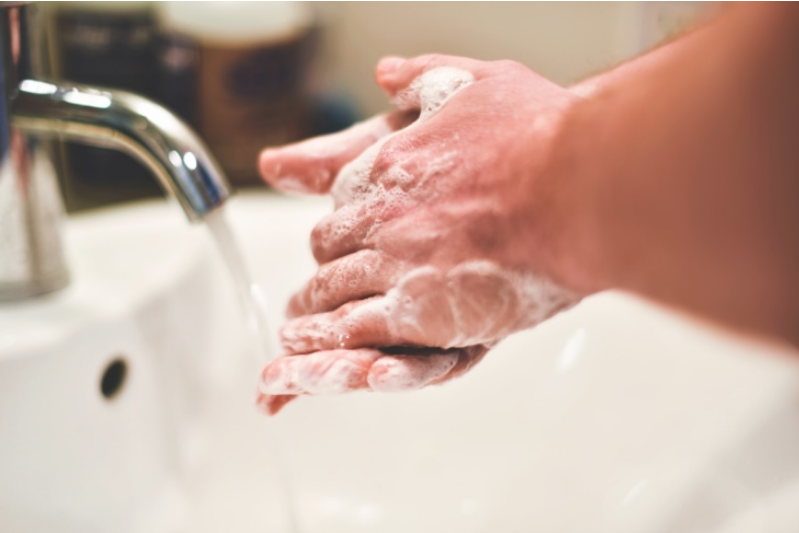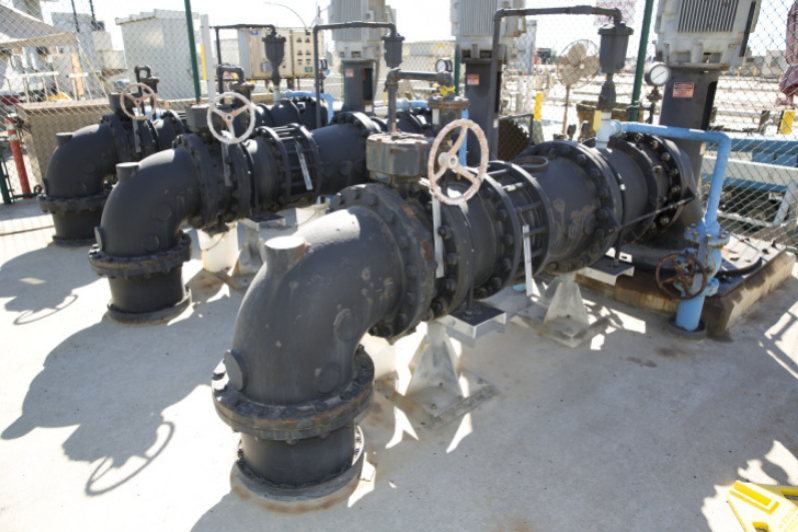新冠病毒能通过水源传播吗?
A Lot Of You Had Questions About Coronavirus In The Water. We Have Some Answers.
BY SHARON MCNARY

The coronavirus pandemic is so new to us that things that seemed so certain — like the safety of our water supply — are suddenly raising questions. Among the nearly 1,500 questions our newsroom has fielded since the outbreak of COVID-19, some have been about water. They usually go something like this:
Can a person get the coronavirus from their home or work water supply?
The simple answer is: not really. Although the coronavirus can live in drinking water and sewage, it's not likely to come into contact with you; our systems for moving water around, treating it, and disposing of it all work very well.
That said, there are reasonable precautions you can take, and things you can do to help our public drinking water and wastewater systems best serve our collective health.
Here are answers to some common questions about drinking water:
WHAT RISK DOES CORONAVIRUS POSE TO OUR DRINKING WATER SUPPLY?
The risk is exceptionally low, according to the Centers for Disease Control and Prevention (CDC).
Our major public water providers say coronavirus is not present in the drinking water supply coming to your home or work. Those include the Los Angeles Department of Water and Power which supplies the city of L.A., and Metropolitan Water District, which supplies imported water to much of Southern California.
The water in your home or business in Southern California comes from local underground wells, and from aqueducts carrying it from Northern California or Colorado. Some water systems also have water that has been recycled. But in all cases the water coming out of your faucet has been treated to remove pathogens and disinfected with chlorine.
Some small residual of chlorine should still be in the water when it gets to your faucet.
Also, water in underground pipes and inside your home and workplace is under pressure, which helps keep contamination from getting into the water.
SO, IS IT IMPOSSIBLE FOR CORONAVIRUS TO GET INTO OUR TAP WATER?
It's unlikely but not impossible.
UC Riverside chemical engineering professor Haizhou Liu studies water treatment. He co-authored a paper calling for more research into how to remove coronavirus from public drinking and wastewater treatment systems. He says scientists recognize that coronavirus can live in both drinking water and sewage and that conventional treatments inactivate or kill the virus, but that more needs to be known about that process and how to improve it.
In drinking water systems, organic microorganisms can develop what's called a biofilm on the interior of corroded pipes. The biofilm creates a kind of structure that viruses in the pipes can stick to and colonize, Liu said.
Under limited circumstances, the corrosion could flake loose from the interior of a pipe and cause the biofilm and its coronavirus colony to flow through the pipe to end users — that's you — by way of a faucet, showerhead, garden hose, etc.. That could happen, for example, if a water utility changed the source of its water (like switching from well water to imported water, or from lake water to river water), causing a change in the chemical balance of the water, Liu said.
But this isn't exactly cause for alarm. Los Angeles DWP General Manager Marty Adams said there is a very low risk that biofilms could carry coronavirus into our homes:
"If you were away for weeks at a time or starting a brand new water service for a house that had been unoccupied, you'd probably want to flush your lines really well first. That's because that water could be sitting, which means that the chlorine in the line could have dissipated and maybe a biofilm started to form."
IF TAP WATER'S SAFE, WHY ARE PEOPLE STOCKPILING BOTTLED WATER?
Back in March, when we were all told to stay home for several weeks, this was such a new situation, it seemed rational for people to buy up the one thing they consider essential. And it's a generally good practice, here in earthquake country, to always have a supply that could keep you going for about two weeks. It shouldn't take pandemic to get us to stock up, but that's what happened.
Bottled water, or the filtered water you use to fill your jug at the water store generally does not have the same chlorine residual in it that purifies tap water, Adams said. Once your bottled water is unsealed, or your jug of water from the local water store is open, it's important to keep it clean so it doesn't become contaminated.
CAN I GET CORONAVIRUS FROM A FAUCET THAT AN INFECTED PERSON RECENTLY USED?
We know by now that the coronavirus is spread by person-to-person contact, and also by touching items that infected people have touched. So you might think that includes a kitchen or bathroom faucet.
Good handwashing means using soap all over your hands under running water for 20 seconds. Soap breaks down the envelope membrane surrounding the virus and renders it inactive. Soap also helps remove the oils on your hands the virus sticks to. The running water rinses it away. Use a towel to dry your hands and turn off the faucet.
If you're living in a home with a person who is self-isolating because they have or might have the coronavirus, that person should be the only one using that restroom, if possible. If not, clean the high-touch surfaces in that restroom after every use.
WHAT ABOUT STEAM FROM SHOWERS?
Liu's paper said the novel coronavirus could colonize biofilms that line drinking water pipes, making showerheads a possible source of aerosolized transmission, meaning the water droplets make a fine spray that can carry the virus.
But, again, most water treatment routines and residual chlorine are thought to kill or remove coronaviruses effectively in tap water Liu said.
 Pipes convey wastewater at Hyperion Water Reclamation Plant near Dockweiler Beach.
Pipes convey wastewater at Hyperion Water Reclamation Plant near Dockweiler Beach.
IS CORONAVIRUS IN WASTEWATER?
Yes, if it's in you, it's going to get into the wastewater system through the kitchen, shower, washing machine and toilet. Wastewater moves in a closed system of underground pipes to regional wastewater treatment plants, it's unlikely you would come in contact with it.
Those plants are where the coronavirus gets killed. The kind of wastewater treatment common in Southern California removes many pathogens that are actually more difficult to kill than the coronavirus that causes COVID-19, said Traci Minimide, chief operating officer for LA City Sanitation and Environment, which includes the Hyperion Water Reclamation Plant near Dockweiler Beach.
"The coronavirus is what they call an enveloped virus. And once that envelope is broken, then that basically inactivates the virus," Minamide said. "And it's much more fragile than other viruses."
One of the big problems at wastewater plants right now is that people are flushing lots of things they shouldn't. When toilet paper was hoarded during the panic purchasing of March, Angelenos started using other products that don't disintegrate in the sewer system.
Paper towels and so-called flushable wipes can block some of the equipment at pump stations and treatment plants. So Minamide asked the public to flush only toilet paper and dispose of other products in the trash.
IS IT SAFE TO BE IN THE OCEAN?
Some treated wastewater is discharged into the ocean from the Los Angeles city sanitation plant near Dockweiler beach. That water is not given a final disinfection with chlorine because it could harm ocean life. That already-treated water is discharged into the ocean using a pipe that is 5 miles long and 200 feet deep. It's a very cold and salty environment. Minamide said local studies have shown that the discharged water does not return to the beach. So beachgoers or surfers should not be at risk from that water.
That said, surface runoff that might have virus in it does reach the ocean, so there is still a good reason to avoid the beach for now.
 Hyperion Water Reclamation Plant, solid items like paper towels, sanitary supplies and "flushable" wipes being skimmed from raw sewage on Nov. 12, 2015.
Hyperion Water Reclamation Plant, solid items like paper towels, sanitary supplies and "flushable" wipes being skimmed from raw sewage on Nov. 12, 2015.